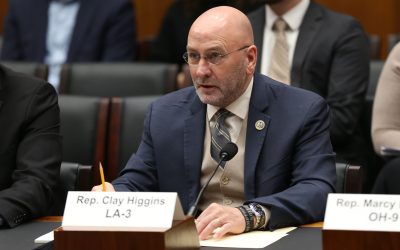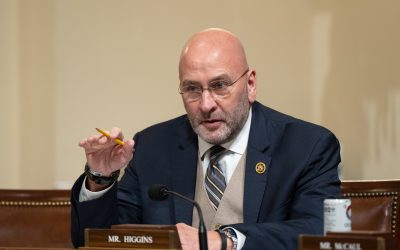Today, the U.S. House of Representatives unanimously passed Congressman Higgins’ fifth piece of legislation, H.R. 4564 the Post-Caliphate Threat Assessment Act of 2017, which enhances the information-sharing environment regarding foreign terrorist activity.
The bill requires the Secretary of Homeland Security, the Secretary of State, and the Director of National Intelligence to issue a detailed report of terrorist movements and activity hotbeds to Congress. More specifically, the report would include analysis of the countries of origin, intended destinations, and means of travel utilized by terrorist fighters as well as an in-depth documentation of terrorist activity in Iraq and Syria.
The legislation is part of Congressman Higgins’ work on the Homeland Security Committee’s Task Force on Denying Terrorist Entry Into the United States, which issued a full report in December identifying information sharing challenges and potential weaknesses in vetting procedures.
Congressman Higgins spoke in support of his bill on the House floor. Excerpts below:
“The Homeland Security Committee’s Task Force on Denying Terrorist Entry Into the United States, which I am a member of, spent the last year taking a deeper look at how terrorist organizations and lone-wolf attackers are entering the nations they are targeting. One of the most concerning issues that the task force learned is that an estimated 40,000 foreign fighters traveled to ISIS-occupied territories to join a force of over 100,000 radical Islamic terrorists.”
“Through major victories by anti-ISIS forces, the Islamic State’s self-declared caliphate in Iraq and Syria has been mostly defeated as a whole, driving these terrorists into hiding. Many thousands of these battle-trained jihadists are now unidentified and their location is unknown. The United States is a primary target. Of particular concern for the United States are those fighters seeking to return to Europe or the U.S. These fighters may seek to exploit direct flights to the United States as well as the Visa Waiver Program. Mr. Speaker, this legislation is about ensuring that we have the best possible data to defeat this threat.”



